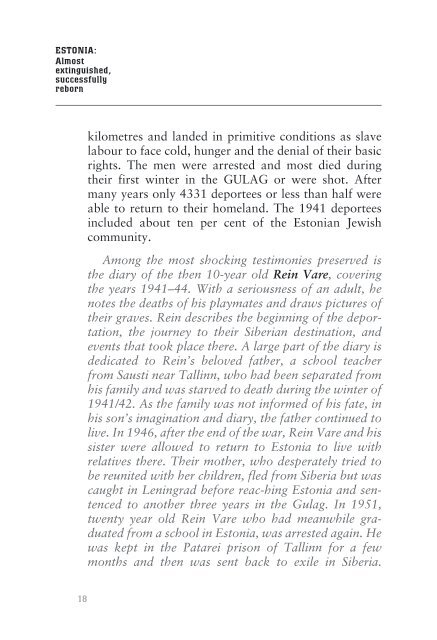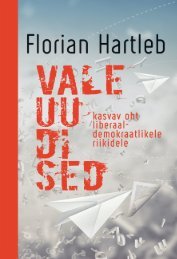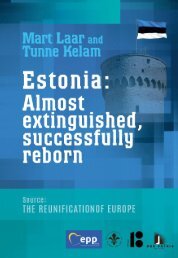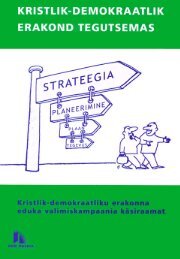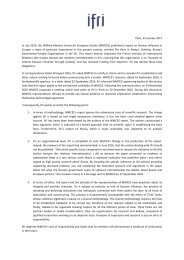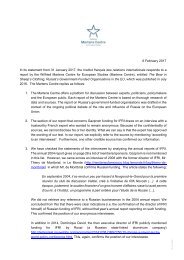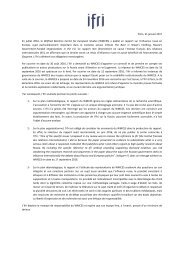ESTONIA: Almost extinguished, successfully reborn
The following text is the shortest possible review to help inform friends and guests from abroad about Estonia’s experience with foreign occupation and totalitarianism as well as its road to peacefully re-establishing national inde-pendence on the basis of democracy. Tunne Kelam Member of the European Parlament
The following text is the shortest possible review to help inform
friends and guests from abroad about Estonia’s experience with
foreign occupation and totalitarianism as well as its road to
peacefully re-establishing national inde-pendence on the basis
of democracy.
Tunne Kelam
Member of the European Parlament
You also want an ePaper? Increase the reach of your titles
YUMPU automatically turns print PDFs into web optimized ePapers that Google loves.
<strong>ESTONIA</strong>:<br />
<strong>Almost</strong><br />
<strong>extinguished</strong>,<br />
<strong>successfully</strong><br />
<strong>reborn</strong><br />
kilometres and landed in primitive conditions as slave<br />
labour to face cold, hunger and the denial of their basic<br />
rights. The men were arrested and most died during<br />
their first winter in the GULAG or were shot. After<br />
many years only 4331 deportees or less than half were<br />
able to return to their homeland. The 1941 deportees<br />
included about ten per cent of the Estonian Jewish<br />
community.<br />
Among the most shocking testimonies preserved is<br />
the diary of the then 10-year old Rein Vare, covering<br />
the years 1941–44. With a seriousness of an adult, he<br />
notes the deaths of his playmates and draws pictures of<br />
their graves. Rein describes the beginning of the deportation,<br />
the journey to their Siberian destination, and<br />
events that took place there. A large part of the diary is<br />
dedicated to Rein’s beloved father, a school teacher<br />
from Sausti near Tallinn, who had been separated from<br />
his family and was starved to death during the winter of<br />
1941/42. As the family was not informed of his fate, in<br />
his son’s imagination and diary, the father continued to<br />
live. In 1946, after the end of the war, Rein Vare and his<br />
sister were allowed to return to Estonia to live with<br />
relatives there. Their mother, who desperately tried to<br />
be reunited with her children, fled from Siberia but was<br />
caught in Leningrad before reac-hing Estonia and sentenced<br />
to another three years in the Gulag. In 1951,<br />
twenty year old Rein Vare who had meanwhile graduated<br />
from a school in Estonia, was arrested again. He<br />
was kept in the Patarei prison of Tallinn for a few<br />
months and then was sent back to exile in Siberia.<br />
18


